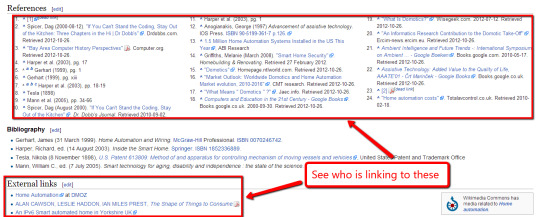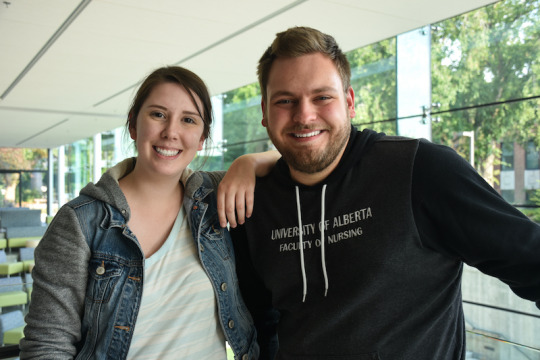#still got the final in a couple weeks but lecture is such a cakewalk compared to the lab portion
Note
I'm in a similar major to you in Texas as well and it's a nice sense of comradery seeing your college posts/art for classes while I'm going through the same shit (I am shaking your hand at hating ochem so hard that it causes a E2 reaction).
OCHEM IS KILLING MEEEEEE... but honestly??? vertebrates is worse. at least in ochem i don't have to look at mutilated cats and get sick off of formaldehyde. vert literally sent me into a spiral earlier this week, i'm so so so glad to be done with that lab
#still got the final in a couple weeks but lecture is such a cakewalk compared to the lab portion#shebbz shoutz#ask#anon hour
12 notes
·
View notes
Text
6 Things I Wish I Knew Before Starting University

http://anotherangle.eu/posts/the-stunning-architecture-of-the-university-of-alberta/
1. Studying in university is way different than studying in high school.
In high school, I used to be able to sit down at 7pm the night before a test, study for a few hours, still get my 8 hours of sleep, and go and get a pretty good grade on the test the next day. You’ll quickly find that in university, this isn’t realistic. If I tried doing that in uni, I would have flunked out by now. Try your best to keep on top of your readings (more on that later) and any little assignments or extra not-for-credit work that your professor may recommend doing. If you study even just for an hour every night, then by the time it’s midterms season you’ll feel significantly less stressed. The same applies for finals; a little goes a long way. When it comes to studying for the exams themselves, give yourself a week minimum to really make sure you know the content. If you have any questions or are confused on any topic, ask! Your profs and teacher assistants are there to help, and they want you to do well too.
2. Keep on top of your assignments.
For myself, the biggest difference between high school and university is that in high school, I did the homework every. single. night. whether I wanted to or not. In university, it’s so easy to just decide to skip the readings or the assignments for class the next day. Nobody will be chasing you down, making sure you’re doing your readings and are prepared for exams. If you choose to not keep on top of your work, then that’s your problem. And trust me, once you decide to skip a reading once, then you will not feel like doing a single reading the rest of the semester. Once finals roll around, you’re going to be kicking yourself and asking yourself why you didn’t just suck it up and do the couple hours of reading every night. As for the major assignments like essays, don’t let them sneak up on you and all of a sudden holy cow; it’s the day before your 10 page essay is due and you don’t have a thesis yet. (Been there, done that. It’s really not fun.) Once the due date is a about month away, try to start forming an idea about what you’re going to write about, and start looking for any resources and articles you’ll want to reference. Do a little at a time, that way you won’t be stressing out the night before needing to pull an all-nighter to write a subpar paper when you could get have received a higher grade by taking it little by little, and really taking your time to read over your work and make edits.
3. Explore your options.
Out of my group of friends that went on to post-secondary, I am the only one that finished in the program I started in four years ago. It’s okay to change your mind, and university allows for a greater degree of flexibility and independent choice than high school does. In sum, people change, and the university understands this. Nobody is going to stand between you and the experience you are trying to cultivate for yourself. As you grow and develop through your experiences at university and elsewhere, so do your interests and your dislikes. One of my friends made it to his third year of nursing before coming to the realization that his heart wasn’t truly in it. He said that he simply could not see himself working as a nurse for the rest of his life. A program that you thought was perfect for you when you first started post-secondary may not fit the person you become after you get some more life experience. Don’t be afraid to switch programs and study something that truly interests you, you’ll thank yourself in the end.

4. You can use Wikipedia as a reference.
Ok, so technically I did learn this in first year, but it’s such a good tip I can’t not share it with all of you. During my MUSIC 103 lecture one day, my prof was talking to us about our essays we had to write. My world was changed when she gave us this incredible piece of advice: she said “If you’re trying to find a good scholarly reference, go to Wikipedia, look up the article of the topic you’re writing on, and look at the reference list. There you can find plenty of acceptable, scholarly references and you’re good to go.” And there you have it. It works for pretty much everything since, you know, there’s a WIkipedia article for pretty much everything. I’ve carried it with me ever since and still use it to this day. That said, it’s not a great idea to limit yourself to Wikipedia for sources, and I’d really encourage you to learn how to use the databases available to you as a student. Campus librarians are really helpful if you’re having troubles figuring out how to navigate the databases, and may also be able to point you in the direction of some great books you could use for your assignment. If you’re still having a hard time finding an appropriate source after exhausting all of the options listed above, there might be limited information or research on the topic (something to consider if you’re interested in pursuing graduate studies), or your topic might be too narrow. In this case, I’d recommend visiting office hours with your professor or scheduling an appointment if you’re unable to make it to their office hours.

5. University is not just a place where you go to get a degree
If you’ve decided to go to post-secondary, you are likely very serious about your education. First of all, to attain a high enough average to apply into your chosen program takes hard work. However, compared to the work you will have to put in to complete a university degree, high school will seem like a cakewalk. Cakewalk: a word which here means an absurdly or surprisingly easy task. University costs a lot of money and most people want to get their money’s worth. Speaking from personal experience, take your classes seriously, but don’t forget to enjoy your university experience. It’s all about having a healthy balance. If you don’t balance out hard work with some extracurricular activities, you will burn out fast. Take the time to give your body and your mind a break and your ability to keep up with the rigors of university education will improve drastically. Volunteering on or off campus, playing sports, or picking up a new hobby are great ways to give your mind and body a much needed break. And don’t hesitate to check out involvement fairs, mixers, or informational sessions. You just might find the thing you’ve been looking for all along. During Week of Welcome, there will be a massive tent set up in the middle of campus (Main QUAD), where many of the university’s 400 student groups will gather to talk to you about the various ways you can get involved on campus and with their club. Some of the clubs will change day-to-day, so feel free to visit each day if you haven’t found something yet.

6. You are not your GPA.
If there is any one thing that I truly hope you take away from this article, I hope it's this: you are not your GPA. At the end of the day, your first year really doesn't matter. Now I'm not telling you to slack off and not try, but you might find yourself enrolled in a class that no matter what you do, no matter how hard you study, you just don't understand the course material. And that's fine. It happens to everyone. For me, it was CHEM 101. When I got my final mark back, I was just happy to see that I passed. But I'm going to be an elementary teacher, and it’s highly unlikely that my future employer will care about my CHEM 101 mark from my first year. First year is hard. It's a huge transition from high school, and can honestly be a bit of a eye opener. Even if you're going to apply for a graduate program, they'll only look at your last 2-3 years, never the first. So don't be afraid to fail, experiment, or put yourself out of your comfort zone if it means you’ve learned something (even if it’s something about yourself). Try your best, but don't beat yourself up over one bad grade during your first year. We've all been there, and trust me, it only gets better.
About the Authors
Michael graduated from the U of A Faculty of Nursing this past year and is currently working as a Registered Nurse in the OR at the University Hospital. He has volunteered with the Week of Welcome/UAlberta Orientation program since 2015 as both a General Volunteer and a Team Facilitator. Michael’s all-time favorite spot on campus is the Butterdome where he and his classmates would go to play badminton between classes.
Sydney is going into her fourth year of a Bachelor of Elementary Education degree and will be doing her Advanced Field Experience (student teaching) this fall. This is her second year with the Week of Welcome program, and her first year as a Team Facilitator. Sydney’s favourite places on campus are the tenth floor education lounge and the arts lounge in the old Arts building, purely because they’re great spots to take a quick nap in between classes.

4 notes
·
View notes